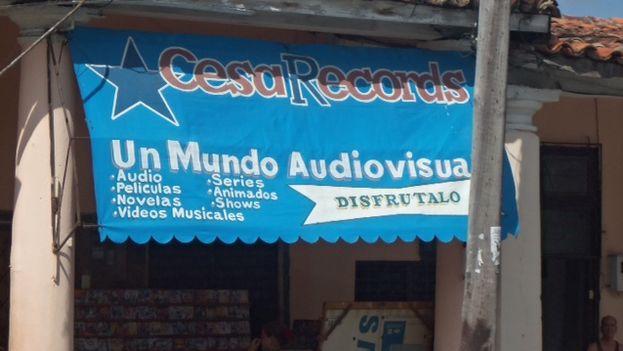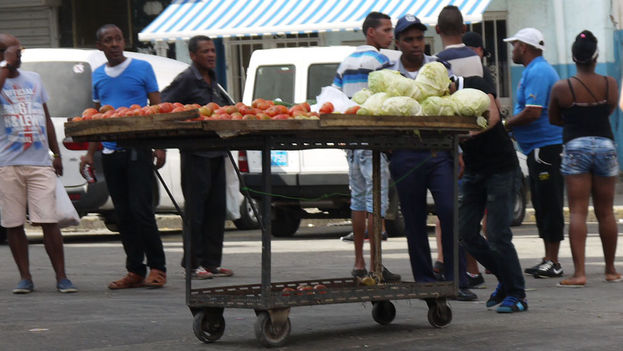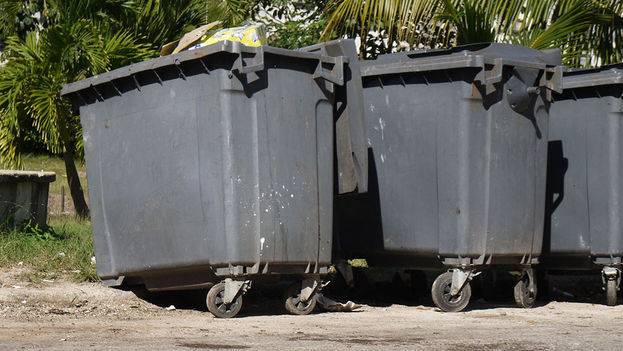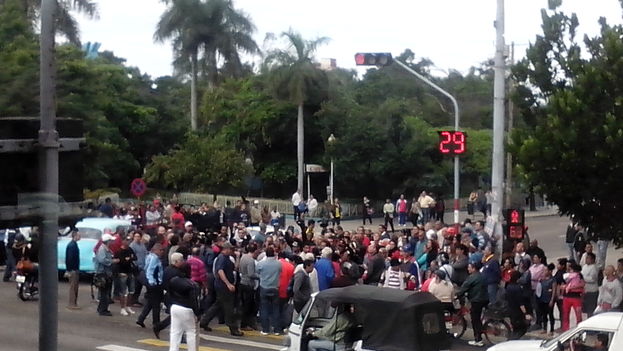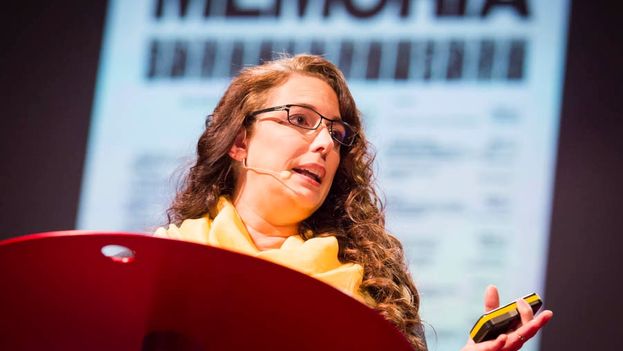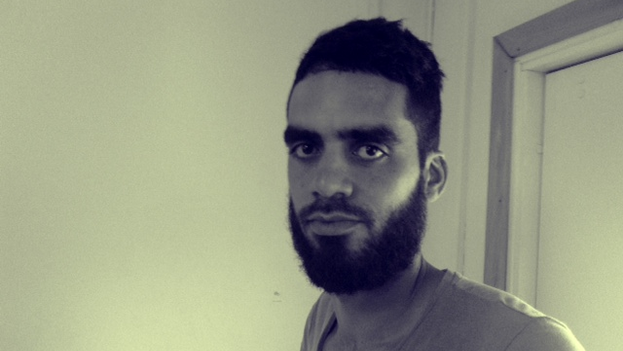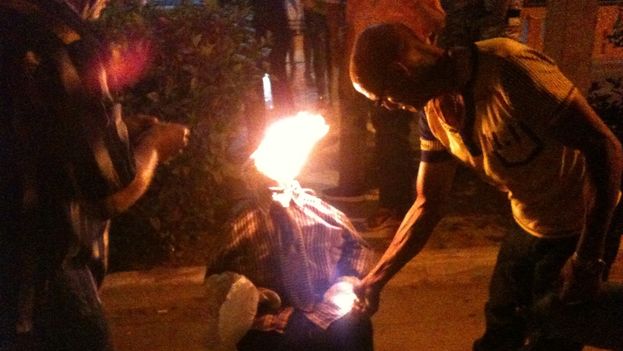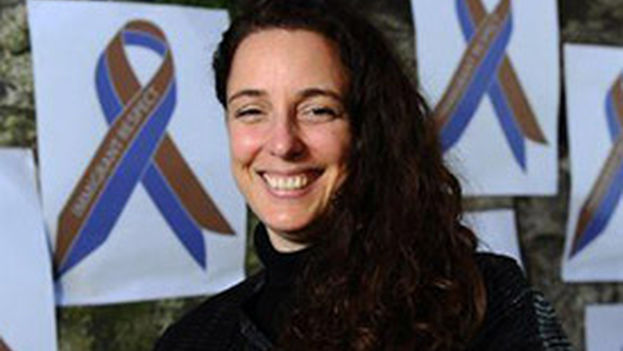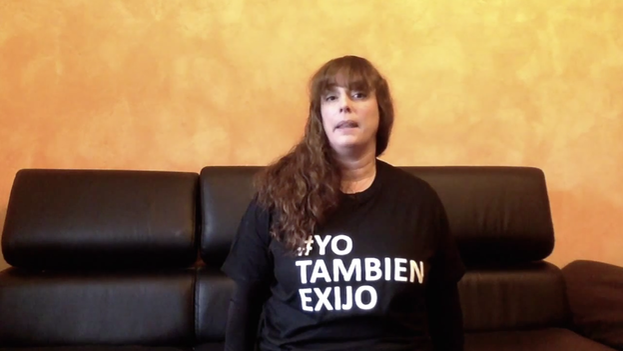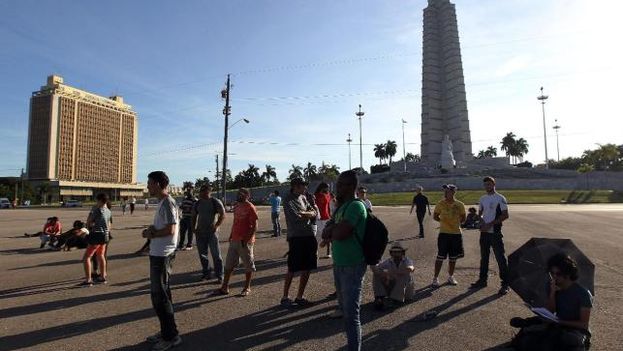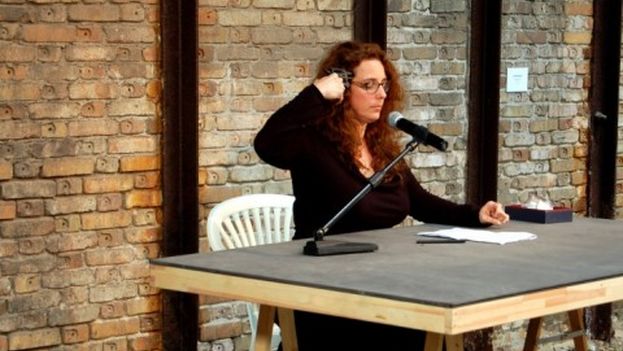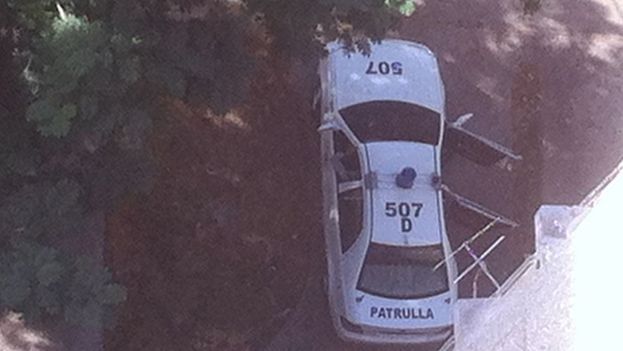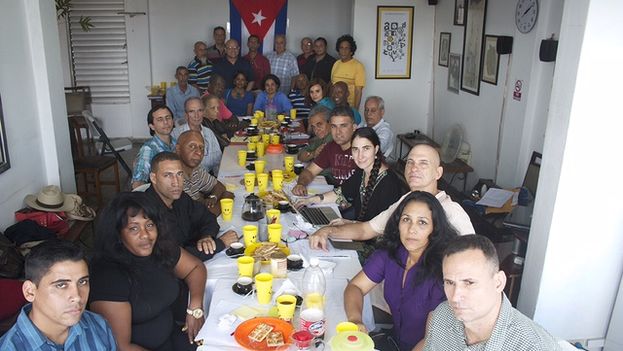14ymedio, ORLANDO PALMA, Havana, 5 January 2015 — A Cuban television special this Sunday entitled “They Call Me Cuba” addressed issues of “cultural consumption in the 21st century,” with special emphasis on the well-known weekly packet of audio-visual material that is distributed illegally throughout the country. Some specialists answered questions ranging from musical tastes to the need to impose cultural policy on the private and tourist sectors.
The results of an investigation carried out by the Juan Marinello Center have revealed that among the main forms of cultural consumption in Cuba are “television, spending time with friends and listening to music.” Pedro Emilio Moras, a researcher for that entity, said that, “The main way for the Cuban population to participate in culture is as the public, as the beneficiary of offerings, actions organized by cultural institutions.” Although he also asserted that, “We recognize that the houses where we live (…) are ideal scenarios for the cultural development of people, even our reality is the space par excellence.” continue reading
Just inside the homes, out of the control of the cultural supervisors and far from the censorship scissors, the packet has life. The numbers of audience members lost by official television is never made public, but, in view of the worry that its officials demonstrate, the phenomenon of the packet-ization of Cuban society must be reaching significant levels.
They Call Me Cuba emphasized that the country “is enjoying a moment of transformation not only economically but also socially. The establishments that belong to the non-state sector have taken their own initiative when it comes to animating their environment.” According to the report, there then arises “the question of how these entities are welcomed or not into the country’s cultural policy.”
It has not only to do with the time – ever greater – that people invest in consuming material of their choosing to the detriment of what’s shown on state television, but the social impact that the private spaces have on the formation of taste and musical and audio-visual distribution. In order to decrease that influence theater critic and researcher Jaime Gomez Triana urged that “the Government’s cultural policy be not only a policy for the Ministry of Culture’s institutions but that it be a cultural policy that regulates the way in which these offering are produced in other spaces.”
In interviews conducted on the street, several people referred to their experiences as consumers of the packet. The favorable opinions mentioned that an advantage of this kind of cultural consumption is that it gives better information about what is happening “in the international arena.” Reported among the factors leading to the increased alternative distribution of audio-visual content was the deterioration of the movie houses that domestically offer a poor substitute for public spaces.
The view that this compendium of audio-visual content is only “soap operas and reality shows” was challenged by several survey respondents who mentioned the didactic and instructive character of some materials like documentaries made by The Discovery Channel, as well as courses in make-up, gastronomy and handicrafts that are also included in the so-called combo.
Fernando Rojas, Vice Minister of Culture, in an interview, criticized those who concoct and distribute the packet as being “people who act strictly on their own and have a network that distributes that material that is updated periodically and that is made at the margins of the institutions and regulations for self-employed work.” In the judgment of Rojas, “the packet is made to feed the illusion that people are choosing (…) in reality, in a certain sense, and I stress in a certain sense, that idea about choosing is an illusion.”
In spite of the dread that the cultural institutions demonstrate before the advance of these forms of self-directed consumption, Rojas thinks that “people who talk so much about the topic of the packet, the famous packet, the aforementioned packet, give it greater importance than I believe it really has.” For the Vice Minister, “to the extent to which we move forward to a greater penetration of the Internet, and we are going to move forward, we are certainly going to move forward ever more, people are going to choose directly on the web and not have to depend on an intermediary. The packet is going to have a limited life in my judgment.”
Fabio Fernandez, content and programming director for the Cuban Institute of Radio and Television (ICRT), explained that among the great attractions of the packet is that “people can watch and listen to what they deem appropriate at the moment when they deem it appropriate.” The fact that “there is no direct relationship between the broadcast schedule times and the time a person decides to watch something” makes many choose this option that does not tie them to the screen on a determined broadcast schedule. To recover the viewers that national television has lost, the official bets on “offering ever more high quality products.”
Nevertheless, the formula for improving the official programming bill faces the difficulty of few resources for legally acquiring foreign content or advancing national production. Cuban television has underperformed in terms of quality, dynamism and thematic updates. An industry that was a pioneer in Latin America and the world has been suffering the fact that series and soap operas produced in Mexico, Colombia and Brazil captivate the public. The problem is rooted in issues that range from undercutting wages of actors and technical personnel to censorship that for decades caused bland, complacent scripts closer to sketches for a school morning assembly than to material to captivate and entertain.
Roberto Smith, president of the Cuban Institute of Cinematographic Art and Industry (ICAIC) said that it should be “based on the legitimacy of personal taste (…) some like one thing and others like another and that is their personal right, to prefer something and reject the other.” But later he remarked “that taste is educated, and that education is a process that must begin from earliest infancy. Right now we are developing (…) the possibility of offering different alternatives of audio-visual education from infancy for youth and for adults.”
Faced with the evidence that the demonization of the packet has only increased its attraction, Rojas confessed that “the path before any phenomenon (…) that is not desirable, in the sense that it is not a carrier of solid human values, of convictions and humanist, supportive, socialist feelings; the reaction before something that does not seem to us to fit in that formative educational effort, the reaction cannot be to prohibit it. The reaction has to be to compete.”
But the packet has come first to that competition with the advantage of being customizable, free from censorship, adjustable to all tastes and considered by the majority of Cubans as something outside of state control.
Translated by MLK

